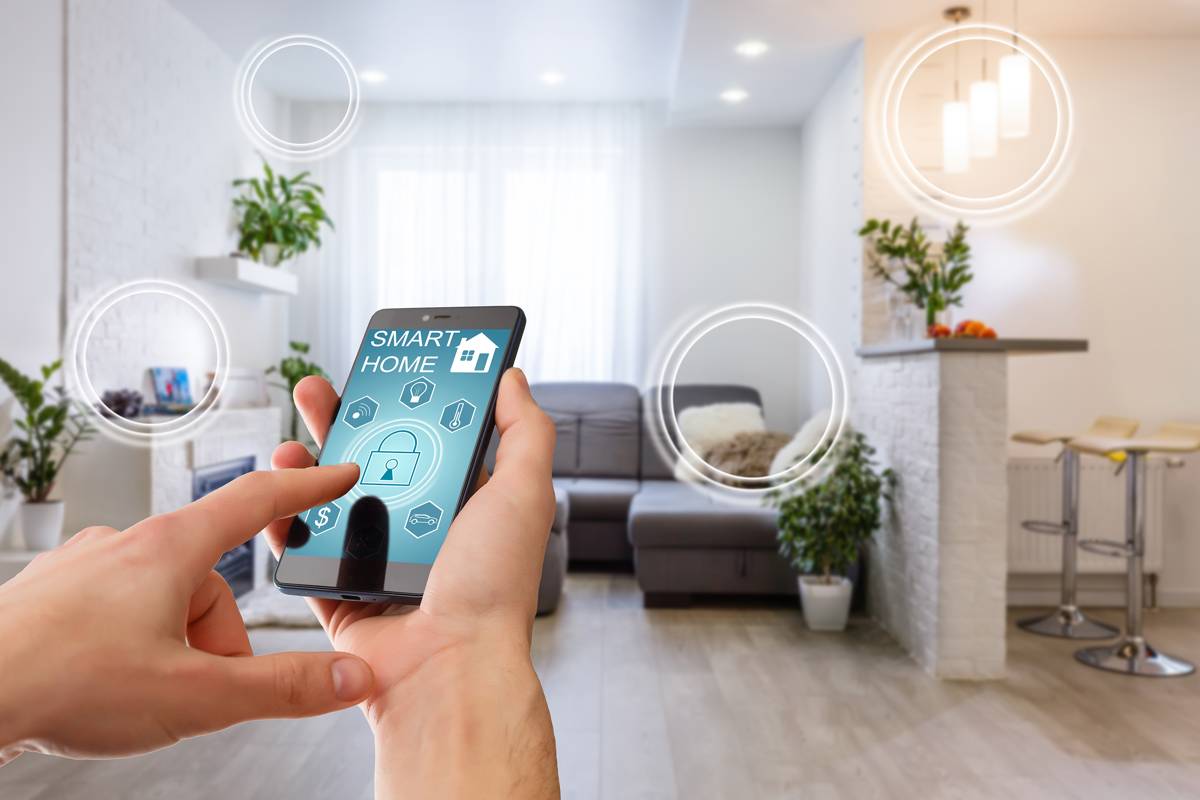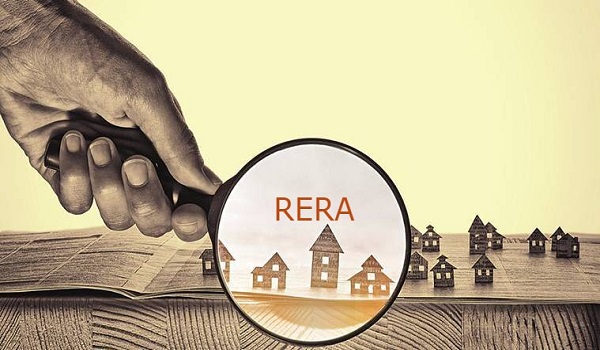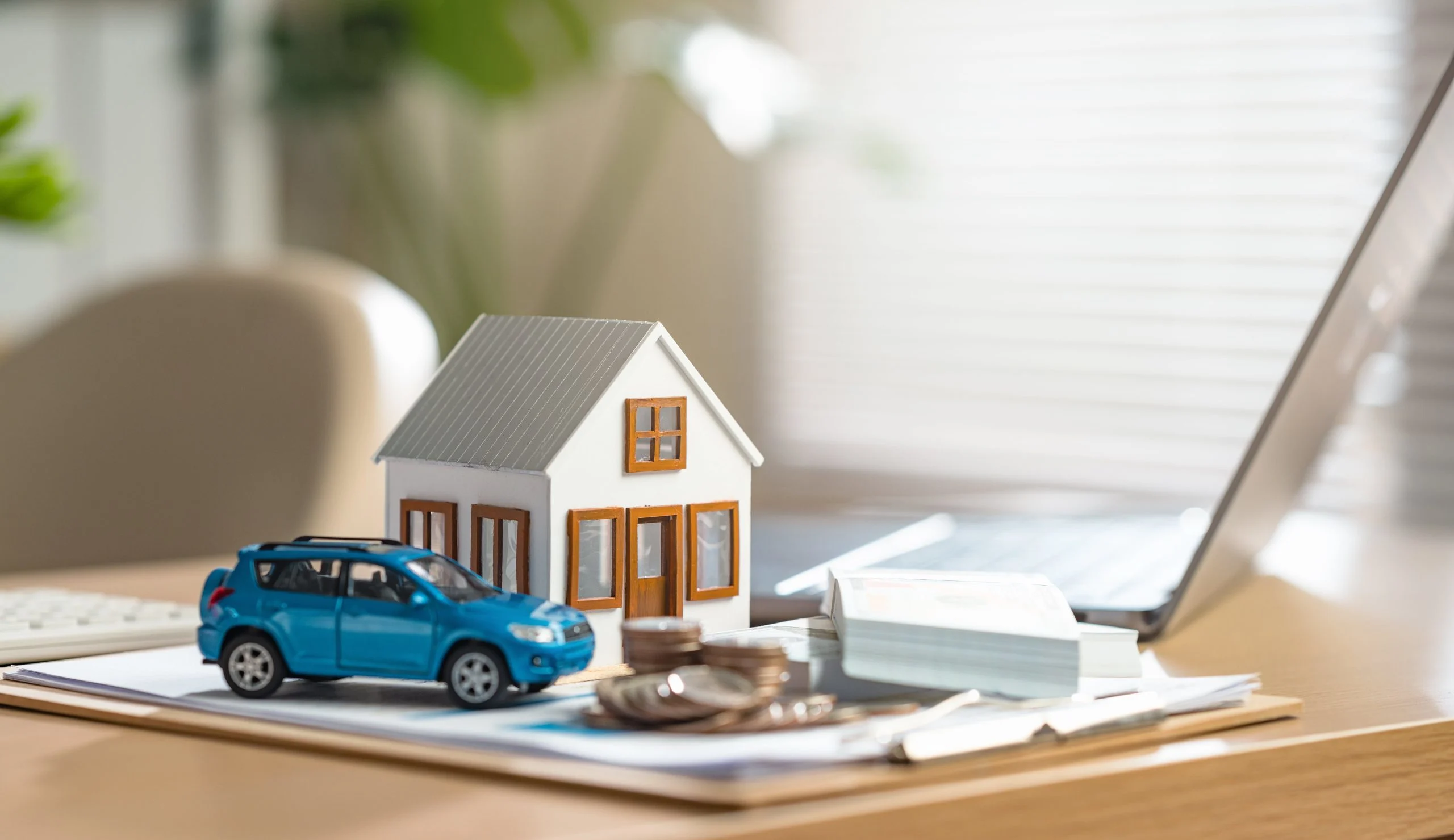How Smart Home Automation Is Transforming Daily Life

The most recent revolution is that of the smart home automation in the way we utilize our space. Automation is transforming the way technology and use of technology in daily life and in Indian homes in particular, everything that was unattainable before is a possibility now.
Due to geomorphic urbanization, such as urban living conditions and creating cities such as Rajkot, smart homes are not only turning into a luxury but rather into convenience, efficiency, and security-oriented solutions.
For example, whether you own a bungalow or live in flats in Rajkot, smart home automation is now both accessible to you and in high demand in Rajkot.
What is Smart Home Automation?
In short, smart home automation means the automated control of electronic devices in your home. Everything that is controlled has an internet connection and it can be controlled by a smart devices, voice activated devices like Alexa and Google Assistant, or be programmed to do an action based on some behavior or liking.
This may include all that is in and around the house, including lighting, air conditioning, home security, kitchen appliances, curtains or blinds, and irrigation systems.
Smart automation is entirely about integrating technology into a home environment, so that a homeowner has a much better efficiency, convenience, and security in their lives.
It is a brilliant innovation that transforms the way technology and use of technology in daily life, and it is fundamentally meaningful and powerful.
The Indian Perspective on Smart Home Automation
India is now going through an incredible digital transformation to meet the future. Cheap internet speed and ownership of smartphones has led many families in India to be more willing to invest into smart technologies in the home.
Urban cities like Rajkot continue to see development in its infrastructure and the demand for flats in Rajkot with smart features are, in many cases, being validated.
Real estate developers are now considering smart systems as part of their new project designs to appeal to the young professional and tech-savvy family markets.
The use of technology in daily life is not just a luxury; it allows one to address many day-to-day challenges where energy efficiency, security, time management, and CITY living are most likely to be involved.
Smart Home Automation for Working Professionals and Families
With the modern-day busy schedule, it may be a challenge to manage the work, family and own time-related activities. Smoothly working smooth automation systems can be of great assistance to busy families and employees as far as handling of daily, everyday routine tasks.
As an example, one can automate his/her mornings when they have school-going children (the lights go on and off at a set time, the geysers go on and heating water at a set time, and preparation of items to have breakfast at a predetermined time).
Similarly, the workforce who are away at work can also keep track of their homes with smart cameras, which keep them updated with live footage in case something suspicious occurs.
This practical engagement with technology has the potential to reduce stress and time, maximizing ordinary organization and efficiency.
Many buyers are now seeking smart-ready rajkot commercial property for these reasons of convenience, control, and peace of mind.
Key Benefits of Smart Home Automation
1. Convenience and Control
Smart home automation comes with a wide range of benefits and the convenience advantage is among the most attractive.
Simply imagine being able to switch off all your lights in the house in bed, checking who is at the door when you are in the office or even setting your geyser to heat up water when you are still asleep.
This great sense of control allows the household chores to be performed with greater efficiency even on the part of the working persons and the aged family members.
2. Energy Efficiency
Smart homes are useful when it comes to conservation of energy.
Lights and thermostats that are smart can have reserves put in place so that they only work when necessary.
It does not only save this wastage but also manifests on your electricity bill.
The adoption of automation to manage energy is a clever way to go with the growing concerns about the problem of sustainability.
It can be seen as responsible application of use of technology in daily life towards making your tomorrow a better and greener one.
3. Enhanced Security
The introduction of smart security systems such as video doorbell, motion sensors and smart locks gives homeowners a sense of security. You will be able to watch your home or trade when you are apart or away.
Indian families have taken security to be very important and now and then, smart home systems can be used to achieve it. Smartech lock & CCTV systems are now being fitted as standard features in most flats of Rajkot area.
4. Tailoring and flexibility
Smart home structures train on your routines. Likewise, when you want to read at night, your smart lights will be programmed to automatically go dim when you normally start reading.
By working at home, you can set your system such that it can control the lighting and cooling of your system to provide you with the best comfort time of working.
Such flexibility highlights the fact that smart home automation is more than manual control because it provides an intelligent support system to suit your way of lifestyle.
Popular Smart Devices in Indian Homes
There are several smart devices available in the Indian market in every price range. We will discuss just a few of the most popular ones.
Smart Lighting and Smart Plugs: These devices allow you to control devices from anywhere using your mobile apps.
Smart Speakers: These voice-responsive devices, like the Amazon Echo and Google Nest, allow you to give vocal commands that are responded to by the smart devices.
Smart Locks: Smart locks allow for your home to be secured without the use of keys.
Smart cameras and smart doorbells: You can receive alerts in real time about intrusions.
Smart ACs and Smart Refrigerators: These devices identify usage patterns and operate accordingly.
With the growing competition and local manufacturing, prices for smart devices are becoming more affordable, and what was a gimmick for the masses is now a reality for many middle-class families. For example, in places like Rajkot city, smart home automation is a reality for many families that are in the middle-class income range.
Integration with Real Estate: Smart Flats in Rajkot
The real estate sector in Rajkot is swiftly transitioning into the future. Builders are contemplating smart features in new residential properties that build the value proposition.
When you search for flats in Rajkot, you will no doubt see advertisements for automation-ready homes featuring some of the following ideas:
Smart lights and fans are controlled via an app.
Biometric entry doors.
Smart parking.
Water/gas leak detection.
Voice-activated appliances.
This advancement is in line with the increasing use of technology for tasks and transportation in our lives and offers a seamless experience in connection with selling to millennial buyers who are now looking for this type of convenience and innovation in their homes.
Challenges and Considerations
Along with advantages, the drawbacks that Indian homeowners encounter, must be discussed regarding smart automation:
1. Initial Investment: Installation of smart systems may be a costly process, particularly in pre-existing houses. This is however likely to reduce as more people use it and as more technology gets mainstream.
2. Connectivity Issues: Lack of internet connectivity in most sections of India is quite prevalent. The presence of dependable Wi-Fi is vital in enabling the smooth workings of smart devices.
3. Technical Knowhow: Not all people are technical. It is not easy to learn and by the end of the day, it may be a high learning curve for people who are geriatric or do not understand smart devices. Luckily, the majority of brands already provide intuitive menus and assistance with the installation.
4. Data Privacy: There is indeed an issue when it comes to the privacy of the user as the smart gadgets gather data to operate efficiently. It is the responsibility of the users to make their systems safe and select brands that have a good reputation and their data policy is clear.
The Future of Smart Living in India
The future of smart home automation in India is bright. With the technology becoming more user-friendly and cheap, its use will continue to increase. Homes will be even smarter as all of them will be integrated with AI and IoT (Internet of Things), or in other words, able to make decisions, save resources, and enhance the quality of life, in general.
The Smart Cities Mission and such government programs as Digital India are also forcing the country to adopt more progressive forms of living. With increased urban planning and development across different types of land, technology-enabled homes are likely to increase drastically in the years to come in Rajkot, which is one of the upcoming urban centres.
Conclusion
Smart home automation technology has an impact on use of technology in daily life by offering unmatched ease, better power control, tighter security, and a glimpse into future living.
Also, whether you're fixing up your current place or buying apartments in Rajkot, putting money into a smart-enabled home can be a wise choice that makes your property ready for what's ahead.
Tech will get brainier and more able changing from a fancy extra to a must-have for many Indian homes, linking, running, and protecting their houses well. The smart home no longer means luxurious as such, but rather one that helps in making life less demanding by simplifying, organizing and assisting our daily activities.
FAQs
Q1. What is smart home automation?
Ans: Smart home automation refers to the use of internet-connected devices to control and manage household systems such as lighting, air conditioning, security, kitchen appliances, and curtains, often through mobile apps, voice assistants, or programmed routines.
Q2. How does smart home automation work in India?
Ans: Smart devices connect to the internet and communicate with each other via apps or voice commands. Users can control devices remotely, set schedules, and automate actions to improve convenience, energy efficiency, and security in Indian homes.
Q3. Are smart homes only for luxury properties?
Ans: No. While smart home automation was once considered a luxury, it is now accessible and affordable for middle-class families, especially in urban cities like Rajkot. Many developers include smart features in new flats and homes to meet rising demand.
Q4. Which smart devices are most popular in Indian homes?
Ans: Popular devices include smart lights and plugs, voice assistants (Alexa, Google Nest), smart locks, smart cameras and doorbells, smart ACs, and smart refrigerators. These devices help automate daily tasks and enhance home security.
Q5. What are the key benefits of smart home automation?
Ans: The main benefits include:
Convenience and control over devices anytime, anywhere.
Energy efficiency, reducing electricity bills.
Enhanced security with smart locks, cameras, and sensors.
Personalized lifestyle, adjusting settings automatically according to routines.
Q6. Can smart home automation help working professionals and busy families?
Ans: Yes. Smart systems can automate routines like turning on lights, heating water, or preparing appliances for morning tasks. They also allow remote monitoring of home security, helping save time and reduce stress.
Q7. What should I consider before installing smart home devices?
Ans: Key considerations include:
Initial investment cost.
Reliable internet and Wi-Fi connectivity.
Ease of use for all family members.
Data privacy and security features of the smart devices.
Q8. Are smart homes energy-efficient?
Ans: Absolutely. Smart lighting, thermostats, and appliances can operate only when needed, helping conserve energy and reduce electricity bills while supporting sustainable living.
Q9. Can smart home automation increase property value in India?
Ans: Yes. Smart-ready flats and homes are increasingly in demand in cities like Rajkot. They attract tech-savvy buyers and professionals looking for convenience, security, and modern living solutions.
Q10. What is the future of smart home automation in India?
Ans: With government initiatives like Smart Cities Mission and Digital India, rising internet penetration, and affordable smart devices, smart home automation is expected to become mainstream, offering AI and IoT-enabled features that further enhance efficiency, security, and lifestyle comfort.
Read More: What is a Title Deed of Property








ADD COMMENT